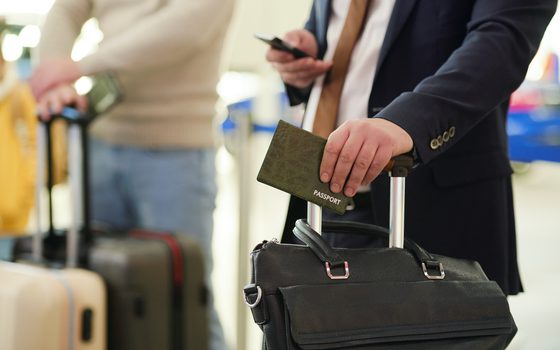Two thirds of flights from London City airport could have been completed by train
New analysis published as Labour government is due to make final on airport’s expansion plans
19 August 2024
Almost two thirds of flights (64%) from London City Airport in 2019 could have been completed in two train journeys or less, analysis from the New Economics Foundation (NEF) and environmental charity Possible has found.
As the Labour government prepares to make the final call on the airport’s application to significantly increase its flight numbers, analysis of Civil Aviation Authority (CAA) data reveals how expansion will worsen the airport’s environmental and social impacts, while only benefitting wealthier frequent flyers.
The proposed expansion of London City airport will be the first test to see if the Labour government will follow their own experts’ advice to stop airport expansion. Now, experts have warned how the proposal directly contradicts advice from the UK’s government’s own Climate Change Committee (CCC).
The CCC’s latest progress report [Thursday 18 July] explicitly warned there should be no net expansion of UK airports.
New analysis of Civil Aviation Authority (CAA) data, by NEF and Possible, has revealed:
- Almost two thirds (64%) of flights from London City in 2019 could have been completed in two train journeys or less. This suggests almost 900,000 tonnes of carbon equivalent emissions were linked to flights departing and arriving on these routes.
- An estimated 43% of seats were occupied by passengers who flew at least once every two months – meaning they made six or more return trips per year.
- The median household income of leisure passengers at the airport was around 34% higher than the average UK air passenger.
Dr Alex Chapman, Senior Economist at the New Economics Foundation said:
“The new government is keen to cut planning red tape and get the country building but not all proposals are made equal. New developments can’t come at the expense of the climate or low-income communities.
“The proposed expansion of London City airport fails on both tests. Indeed, the proposed expansion directly contravenes the advice of the Climate Change Committee – an expert group created by the last Labour government.
“Our analysis shows that expansion will not only make it harder for the UK to meet its climate commitments, but it will also offer little to no economic benefit, all while damaging the wellbeing of hundreds of thousands of people who live nearby.”
Recent NEF analysis showed how business use of air travel had collapsed since the pandemic, and the numbers are well below their historic peak in 2006.
Now, London City airport is trying to move further into the leisure travel market. But NEF research suggests only an increase in passengers travelling for business drives up economic indicators such as GDP because any gain from tourism is offset through spending losses of outgoing tourists.
The new analysis shows in 2022, for every two tourists that came into London through City airport, three departed.
Alethea Warrington, senior campaigner at climate charity Possible, said:
“The new government has promised to make Britain a climate leader on the global stage once again. This is the first real test of that commitment.
“Allowing London City airport to fly an even greater number of noisy, polluting planes over our heads would be harmful for our climate and for Londoners, while only benefiting wealthy frequent flyers and private jet users.
“The new government has a clear mandate to cut emissions and protect the climate for all of us, which just isn’t compatible with allowing airports to expand.”
ENDS
Contact
James Rush – james.rush@neweconomics.org
Notes
The Climate Change Committee’s 2024 Progress Report to Parliament can be found here
The full analysis of the Civil Aviation Authority data can be read here.
London City airport has applied to add an additional 2.5 million passengers per year to its capacity through a removal of the current restriction on flights taking-off on Saturday afternoons, and to increase the number of flights departing before 7am on weekdays. The London Borough of Newham rejected the proposal, but the airport has appealed the decision and the new Labour is expected to make the final decision in the coming weeks.
NEF analysis which shows that there were 3.9 million fewer business air trips in 2023 compared to 2019 can be viewed here.
NEF research into the impact of air travel on the economy is available here.
Topics Climate change Environment Transport






